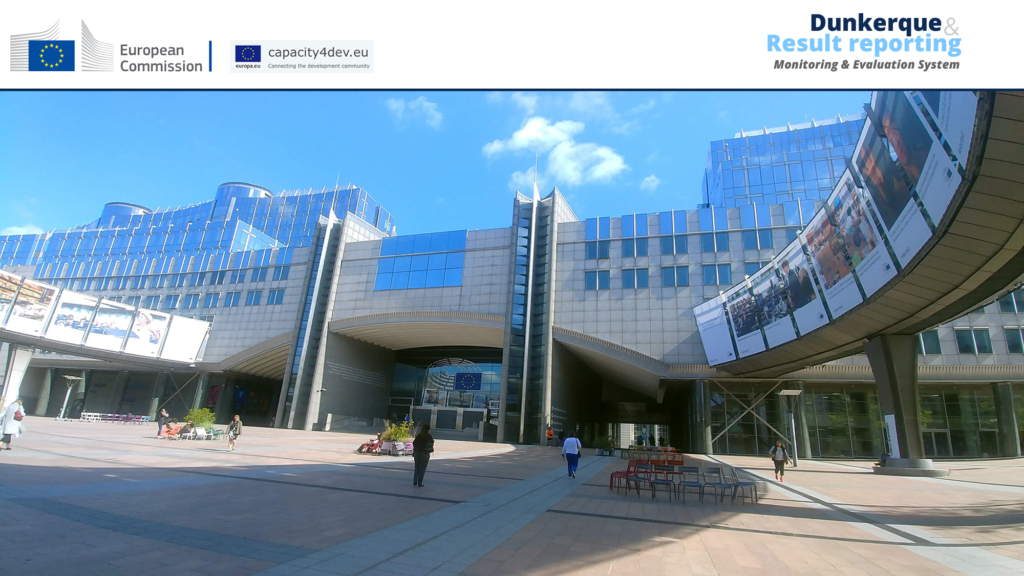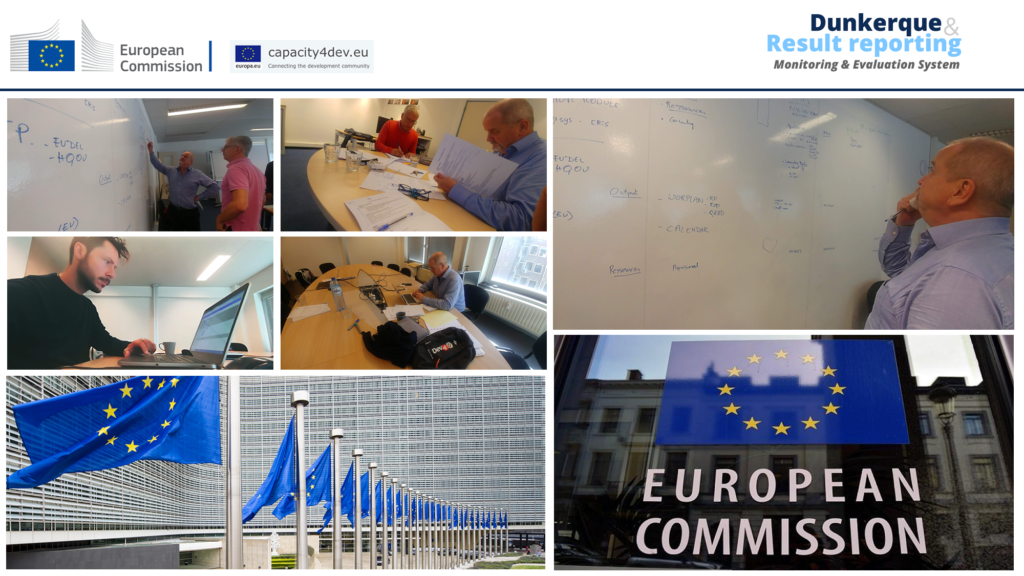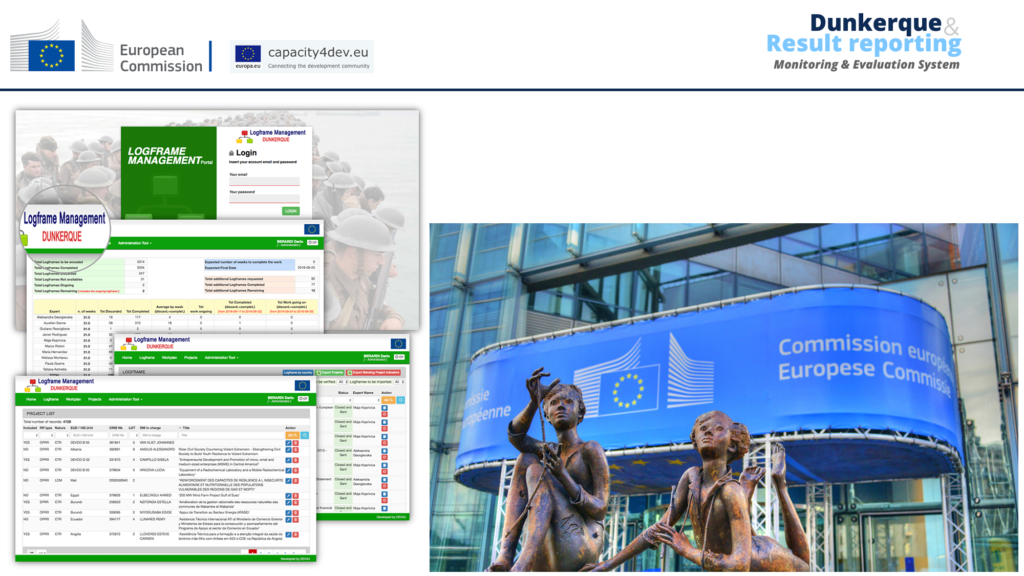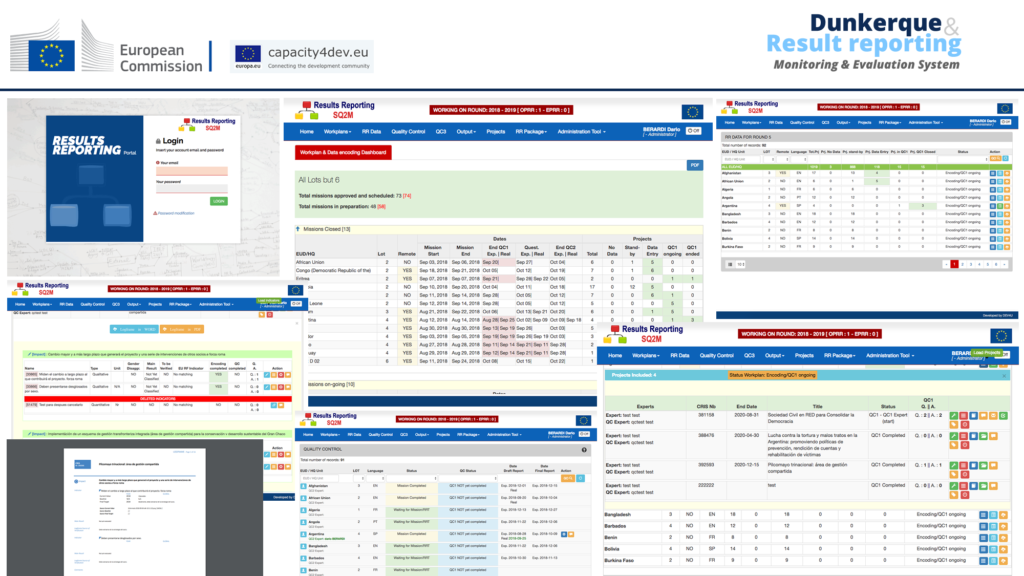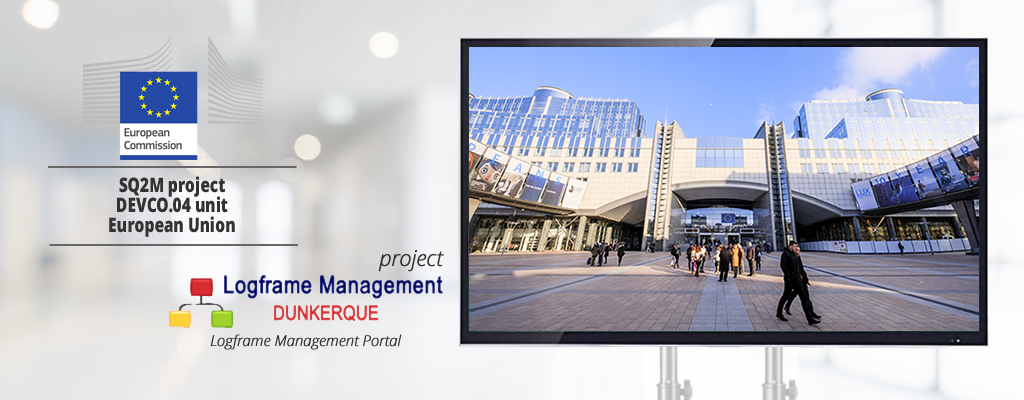
We have published an interview with Dario Berardi, our International Project Area manager. He talks about DUNKERQUE project: a Monitoring and Evaluation web system.
Audio: French
Subtitles: English, Italian (you can activate subtitles from Youtube video settings)
We tell you our company case study through a 1-minute cartoon.
Have we intrigued you? Watch our cartoon and turn on the speakers!
Credits: by DEV4U, Fabrizio Gargano e Marco D’Auria
5 QUESTIONS +1
#5QUESTIONSPLUSONE
The B2B interview + the human factor
1. The Customer: Who contacted you and how?
We were contacted by the team of the SQ2M project, a unit that provides support to the DEVCO.04 unit of the European Union that is in charge of result reporting activities. The SQ2M team already knew us as we had worked together for many years both in Italy and in Africa, and we had developed several IT systems together. It knew our characteristics well, those of our small enterprise that, in his opinion, were characteristics of paramount importance to solve their problems. We received an e-mail from SQ2M team, who wrote to us to ask whether we were available to develop this portal, this IT system for the unit. They knew our characteristics well, those of our small enterprise that, in his opinion, were characteristics of paramount importance to solve their problems.
2. The Problem: What were the specific needs of the European Union when you have been contacted?
In 2017, the division of the European Union that had to ensure the result reporting was in very delicate condition that is, he did non have the tools to do his job and the risk was that on not being able to provide information on the indicators needed to complete the annual report. A big problem because the DEVCO.04 unit has the task of drawing up indicators of the results obtained by projects financed by the European Union every year.
3. The Solutions: What solution did you adopt in order to meet all the objectives established by the EU? And why did they call you and not a bigger and more famous company?
They certainly chose us for three reasons.
1) The technical competence we have to create an IT system that is not only capable of managing data, but also procedures.
2) The ability to initiate and generate an incredibly fast reaction, that is, the ability to act and react quickly;
3) and finally, another key feature, is the ability to work on the system while users are using the platform.
Those characteristics are not easy to find. Initially we develop and publish a module and people starts using it, then we can intervene quickly and with well-targeted actions to improve and perfect the module.
While we work on the code users can use the platform, so there is no down-time.
One strong feature of DEV4U is to respond quickly to changes in the requirements and I do believe this is one of the main reasons why SQ2M team contacted us.
4. The Advantages: What results have been achieved by adopting your solution?
Today we can say that the development of this platform proved to be a success.
We started in 2017. Two years after that 2017 the DIGIT division of the EU has contracted us to carry out the export of all information of all the indicators that we had recorded on our system into OPSYS (OPSYS is the new management information system) so that when it will be ready OPSYS will not start with an empty database but will already have logical frameworks inserted for the projects that have been analyzed.
Therefore, we believe that we have gained not only the trust of SQ2M team but also of the European Union officers and maybe this is only a start because we have already been contacted by other divisions of the European Union for the development of other platforms.
5. The Details: Strengths and weaknesses of your approach.
We think we can say that the strengths and weaknesses refer to one of the characteristics of our society: the ability to develop and react quickly to change in the requirements.
What does this mean?
Fast cycle development means that the time for a feature is very short (strength). However, this speed increases the risk of having bugs on the platform (weakness).
Why do we say this? We have received several positive comments from experts who have worked on the platform. In particular I’ve got an e-mail from an expert – from South American – who told us: “when they informed me that I should be using another platform, I was very worried because usually platforms developed by the European Union are quite heavy and complicated, they are not “userfriendly”, but after a year of using it, I no longer have any worries, the platform is very easy to use and the Technical Assistance is pretty good“.
In fact, it is important to underline, when we are in the presence of a bug and we receive an email about the malfunction of the platform, we normally resolve the problem within the following 2-3 hours. Everyone is amazed by the technical assistance which is essential for this type of platform, and which allows you to solve the bug 2 or 3 hours after the notification. So we believe that this ability to respond quickly is at the same time our strengths and our weaknesses.
+1 The Human Factor: Dario, we know that in Brussels they have given you a nickname…
It’s true! The rescue operation requested by the SQ2M unit has been called “Dunkirk Operation“; it is a nice anecdote to tell and refers to the Second World War, when, during the Dunkirk operation, the British and French troops were stranded on a Normandy beach. As the German army attempted to annihilate them, large British military ships tried to retrieve the troops stuck on the Normandy beach to bring them to England, but these were difficult to reach and large ships were an easy target for the German aviation and therefore, at the end, it was the small fishing boats that transported English and French troops to England.
Operation Dunkirk therefore refers to a rescue operation: since we “saved” the result reporting for the year 2017! It also refers to the capacity of small IT companies, which are much more flexible and much more agile than large companies that need 6 and more months to do an analysis and one year and more to develop it and, when everything is ready, users’ needs are likely to be different and the system become useless.
So that’s how we became “Those of Dunkirk” and it’s good because in 2018 we received a new call from the European Union asking us if we were ready for Operation Dunkirk 2! By now this nickname has become so much part of the spirit and mind of people that, today… we are “those of Dunkirk“.
Discover the pages of our solutions:
Our website:
